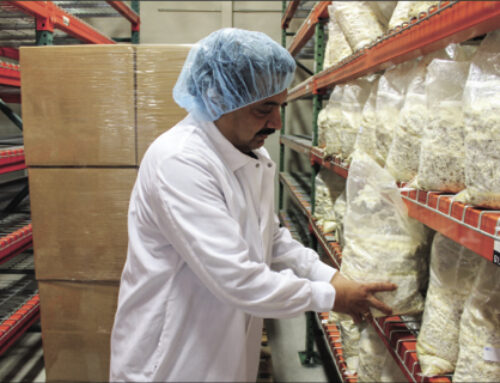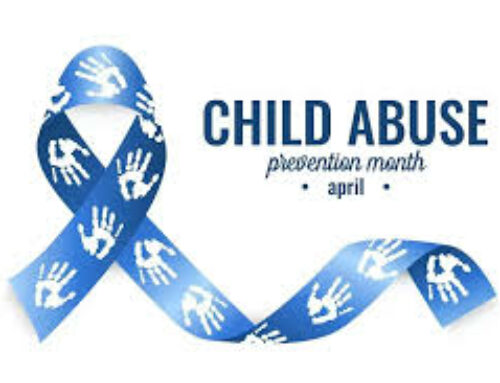Terrance Hunter teaches “living skills” to help boys and men cope with life

Terrance Hunter helps the incarcerated in his Morgan Hill-based nonprofit program Empowering the Fatherless. Photo courtesy Empowering the Fatherless
By Kaylee Arca

Released from Soledad Prison in 2014, he turned his life toward positive pursuits.
He started a nonprofit called Empowering the Fatherless in 2019. Nnow as a motivational speaker, he focuses on providing free “living skills” that enable students to cope with various life situations. He developed the curriculum based on experiences from his 30-year incarceration.
The Morgan Hill resident is proud to be changing the lives of local students and inmates one father figure at a time.
The organization embraces and supports fatherless and at-risk youth. It also helps adult males.

Terrance Hunter helps the incarcerated in his Morgan Hill-based nonprofit program Empowering the Fatherless.
Photo courtesy Empowering the Fatherless
“I started out wanting to target fatherless kids,” he said. “Now, we also target men who grew up in a fatherless environment or had a poor excuse of a father. And even though some kids may have a father in the home, that doesn’t mean that he’s involved and providing guidance.”
Hunter recounted regretfully hanging out with “street thugs” as a young and impressionable teenager.
“These were guys much older than me,” he said. “They would be my mentors in terms of telling me what a man is, what a man does, or what a man doesn’t do.”
He now relays his history of “bad information” to Sobrato and Live Oak high school students in his ETF classes. (He hopes to eventually expand the program to Gilroy schools.) ETF’s curriculum is designed to create a sense of community for the students and inspire their possibilities in life after graduation. Hunter is transparent with the students about his incarceration so he can caution them away from making the same mistakes.
“My classes target different areas because I don’t believe you can give a person one self-help group and change their life,” he said.
Classes in effective communication skills, building self-esteem, managing money, how to say no and mean it, and more, are all taught by Hunter.
When he first brought ETF into the Morgan Hill high schools, Hunter noticed that the personality of many of the students was closed and guarded. As time went on, attitudes shifted as students began taking on new concepts and fresh ways of viewing the world.
“A lot of these kids, their parents, grandparents, and relatives live in the community,” he said. “So, they don’t see a possibility of their lives being any different.

Hunter’s classes give students permission to aspire to careers and educational options that they didn’t know existed. With the help of college student volunteers, Hunter also brings ETF to the county jail and the re-entry center where he’s worked with almost 800 offenders and parolees.
“Most of the people who leave prison return to the same behavior because they don’t deal with the root causes of their dysfunctional thinking and behavior while they’re incarcerated,” he said. “They leave basically the same person they were when they came inside.”
Low self-esteem contributes to criminal behavior. Even if a person grows up in an affluent neighborhood, they can suffer from a negative view of themselves that can lead to violence.
“I always lived in nice homes. I drove nice cars. I ate at nice restaurants. So on the surface I appeared to have it together,” Hunter said. “But really I didn’t because a lot of things from my childhood were affecting me as an adult.”
He felt left out in his childhood because his father was absent. He often envied boys whose dads took them on camping trips or sports events. The envy turned to anger, he said.
When Hunter meets a new group of inmates, he prefaces his curriculum with his history and clearly states he’s not trying to get anyone to think like him or change their thinking and behavior.
“If you think what’s going on in your life right now is working for you, you keep doing what you’re doing,” he said. “If you like being in handcuffs, in the back of squad cars, wearing those clothes you’re wearing, eating this food, told what to do 24 hours a day like a two-year-old kid … if that’s your lifestyle, keep doing what you’re doing. I’m here for the guys who don’t like what they’re getting but maybe don’t know how to turn things around.”
Hunter’s own time in prison gave him an up close and personal understanding of common recurring problems. This viewpoint helps the inmates relate with him.
During his imprisonment, Hunter joined self-help groups to understand his mentality and anger. These groups helped him realize that his heated emotions were just the surface of lingering childhood trauma from not knowing his dad. By understanding the source of his rage, Hunter was able to begin healing his dysfunctional lifestyle, he said.
Hunter also offers a fatherhood program as part of ETF. He teaches men how to be better fathers and partners to the mother of their kids. This includes parenting and child development classes on the importance of co-parenting and healthy child development.
“So we’re just trying to give both offenders and kids well-rounded skills to where they can live a productive and meaningful life,” he said.
Kaylee Arca is a freelance writer and Morgan Hill resident.







